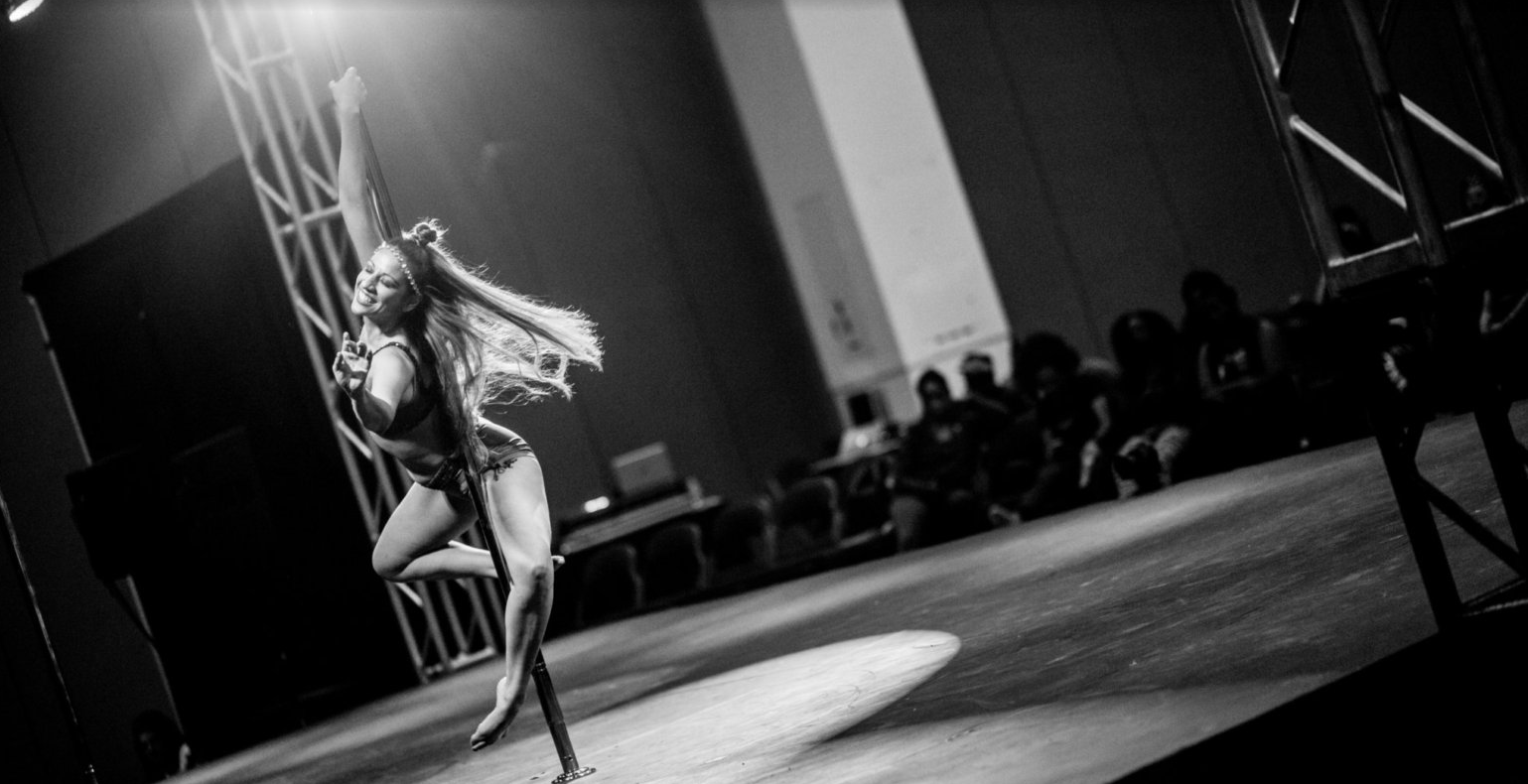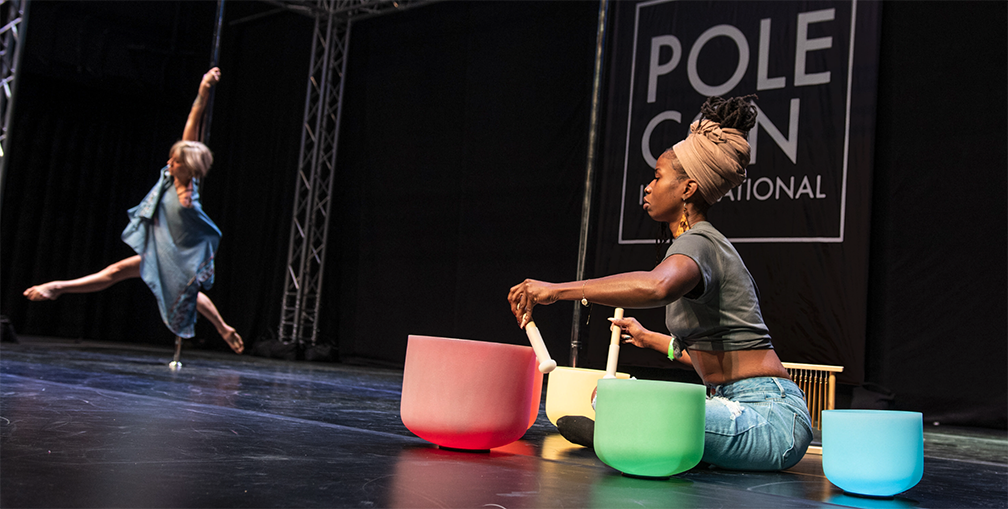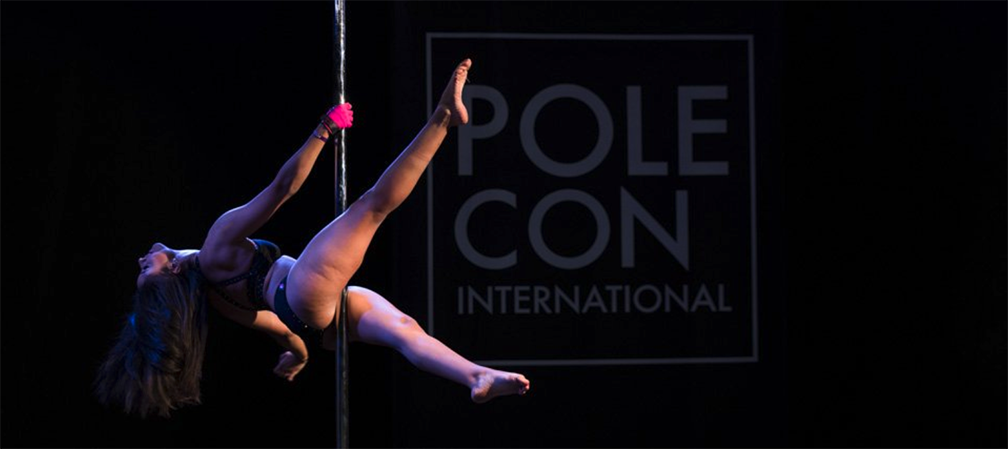You’re doing everything right—Training both sides. Eating well. Hitting the gym and the studio. …But…

DON’T DISCOUNT YOUR EMOTIONS: POLE IS A MENTAL ACTIVITY
A study done in the 1960s by Robert Rosenthal discovered just how powerful are brains are in manifesting actions into physical reality. He called it the Pygmalion effect after the Greek story where the sculptor creates a woman out of ivory and loves her so much she turns into a real woman (with a little help from the gods of course). The study took a group of students, tested them, and then informed them that they were “academic superstars” and had “the most potential for academic growth.” Their teachers were specifically told not to give these students any more or less attention then any of the other students. At the end of the year, they were tested again and were indeed academic superstars with off-the-charts results. The twist is, when the students were originally tested, they were completely ordinary. Telling them they were smart allowed them to internalize that positive information which in turn reflected in their words and their actions, propelling them to actually increase their intellectual ability.
This same phenomenon works for athletes too. Athletes that believe they are better, actually perform better than those that have low confidence in their abilities.
As polers, we practice our craft, our sport, our art, ceaselessly. We train and cross train, we push our bodies to their absolute limit. We research ways to get stronger, improving our nutrition, managing our stress, but all those physical preparations fail when faced with fear and lack of confidence.
The bravest thing you can do is walking through the studio door the first time
When I have a new student, I tell them the bravest thing they did that day was walk through the door. It is tough to try something different and even as veteran polers, we continuously are challenging ourselves every day. I had one student tell me recently that she feels she has hit a plateau and all the next moves she “should” be learning scare her to death.
When I teach a trix class, I tell my students which categories the move falls into out of these five: technique, strength, flexibility, pain tolerance and sheer terror. You might be strong enough but not flexible enough for some splits on the pole type moves. You might have the technique and strength to execute a superman, but not the pain tolerance (at least at first). Sheer terror is the category that supersedes them all. Regardless of your strength, your knowledge of the technique and ability, there is something absolutely terrifying about some moves. What might seem completely safe and normal to you is your fellow student’s greatest nightmare.
Sheer terror is something we all will continue to face, to a greater or lesser extent, as we progress in our individual pole journeys. We might compete for the first time or participate in a studio showcase. We might try a move that previously we fell out of or try hundreds of other things that challenge our self-confidence or our belief in ourselves.
While we cannot “fix” sheer terror with a magic wand, the good news is, like our biceps and quads, our ability to deal with and conquer terror is a “muscle” we can strengthen.
Start by believing that you can execute a move or a routine
If simple belief isn’t working for you, try talking to yourself. Telling your body verbally that you can do it. Tell your tight hamstrings to relax. Take deep breathes and realize that you have the capacity to be great—manifest your own positive, intentional reality and not the one the tiny but very mean little voice inside you thinks is your reality.
Help your fellow students too by cheering them on. For a while I danced in a Bollywood dance troupe and every time before we went on stage, one of my fellow dancers would always freak out. I would calm her down and tell her that she was a sexy beast and was going to do awesome. She said she could never go on stage without me and started calling me her “Blankie” since I fulfilled that role of a security blanket. You can the support for your friends or you can also be your own “blankie”—when you start to get scared, tell yourself “I got this.” “I practiced and I’m prepared.” “I’m strong, I’m flexy and I’m gonna rock that pole!” Tell yourself out loud, write it down, put it in lipstick on your bathroom mirror so you see it every morning: “I got this.”
Sounds cheesy I know but do not underestimate the power of positive or negative self talk. I’m sure you’ve had those days you just don’t feel like coming into the studio and the more you say you “can’t” do something, the more your muscles oblige, leaving you on the ground while your fellow students twirl and climb and accomplish the moves of the day.
Treat yourself kindly
It is important to recognize that all physical activities involve an extreme amount of mental and emotional stress that go along with the physical stressors of perfecting and progressing. Pole is no different and may be even more emotionally demanding as we challenge oft-held fears every day—fear of heights, fear of being exposed physically in front of other people and the fear of being on stage, often solo on a slippery metal apparatus.
Treat yourself kindly and if you are terrified of a move, cut yourself some slack and try again a different day. Lean on your teachers and your fellow students when you’re ready to challenge yourself and always remember—you have the capacity for bravery and greatness larger than you currently believe. You’ve already walked through the studio door? How hard could everything else be?
Latest posts by Colleen (see all)
- Interview with New PoleCon Instructor: Melonsl - May 9, 2025
- PoleCon Hub Page: PoleCon Info - April 25, 2025
- Interview with New PoleCon Instructor: Aerial Crystal - April 4, 2025


